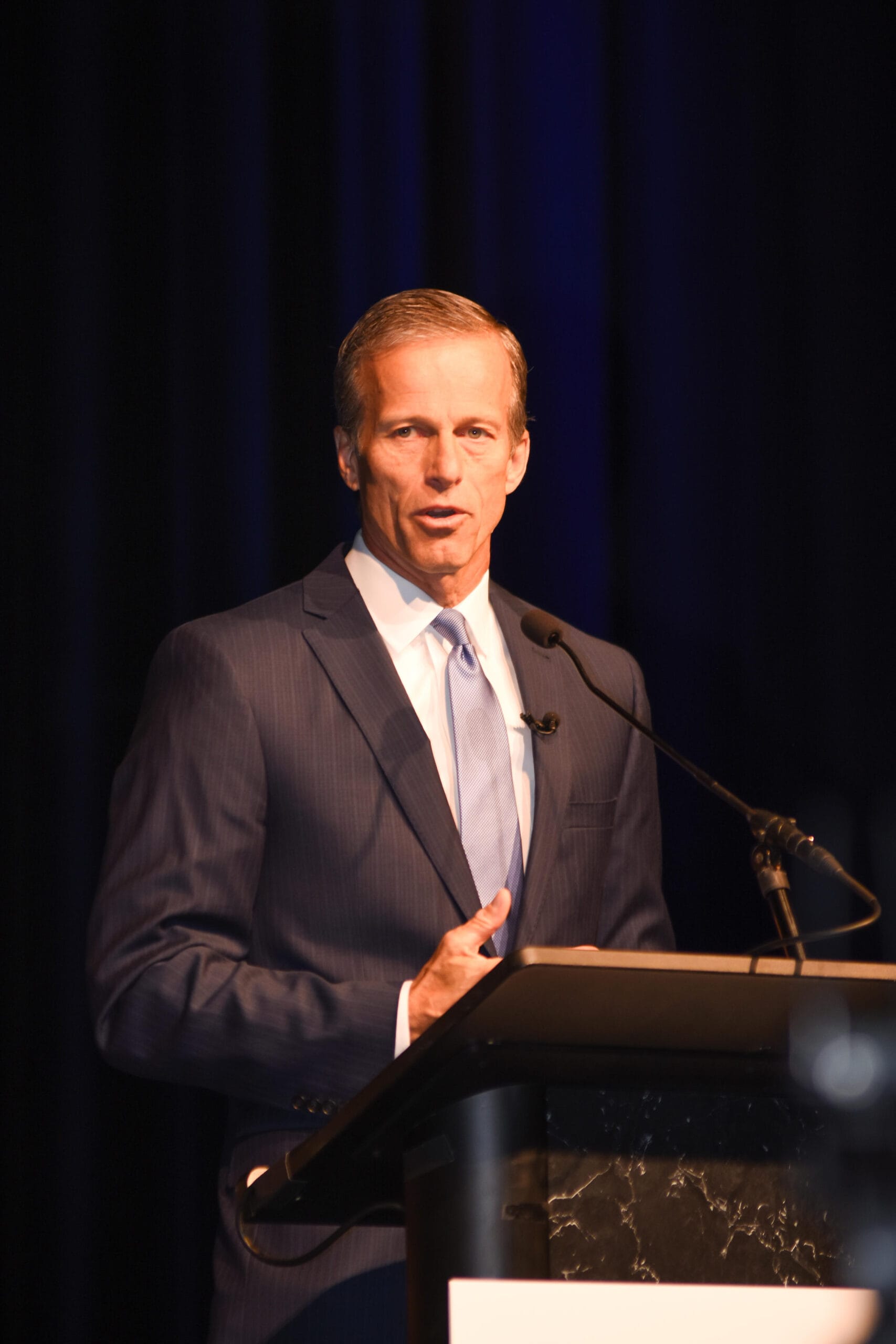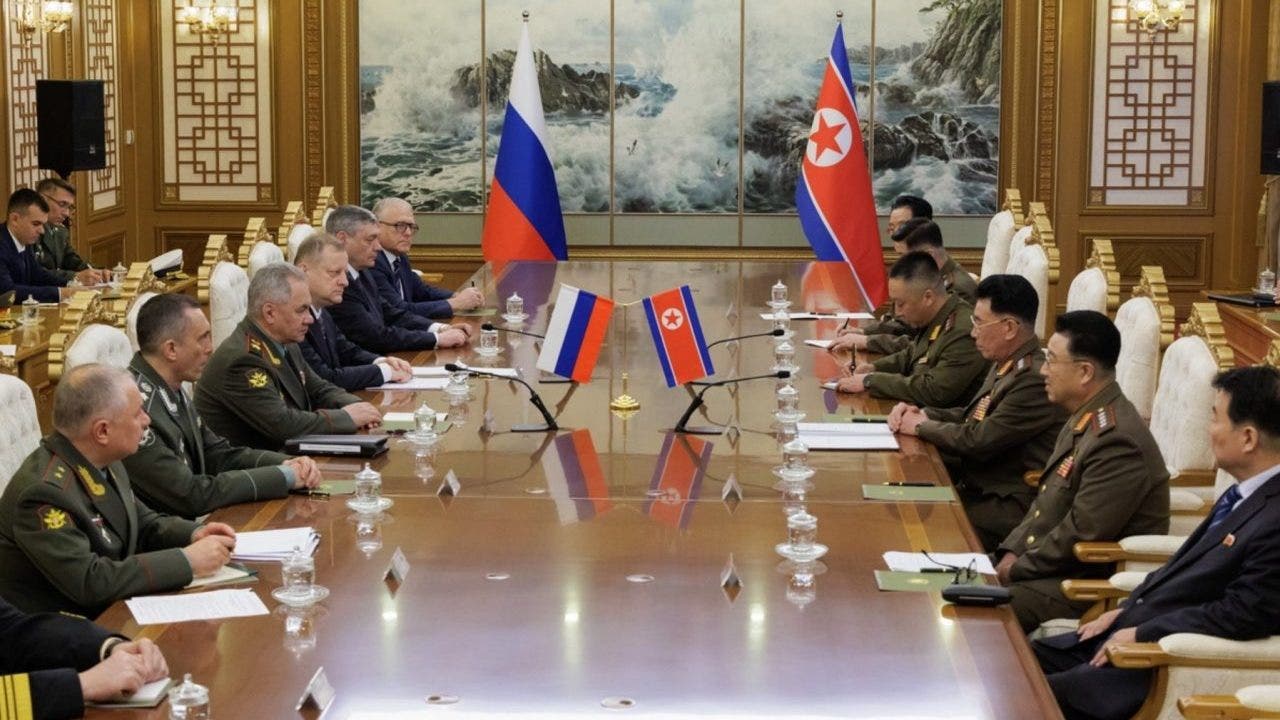In a significant moment for the U.S. Senate, John Thune was officially sworn in as the new Majority Leader, taking the helm of the chamber at a time of heightened partisanship and legislative challenges. During his first address, Thune made a firm commitment to uphold the filibuster, a procedural mechanism that allows a minority of senators to prolong debate on legislation, thereby requiring a supermajority for certain bills to pass. His pledge to preserve the filibuster underscores a broader strategy to encourage bipartisan dialogue and collaboration among senators.
Thune’s ascension to the Majority Leader position comes after a series of contentious elections and ongoing debates over the direction of the Senate. As a seasoned lawmaker with years of experience, Thune is well aware of the complexities involved in leading a diverse group of senators. His leadership style is expected to focus on building consensus and fostering relationships across party lines, a necessity in an era where partisan divisions often lead to legislative gridlock.
In his address, Thune articulated his belief that the filibuster serves as a vital safeguard for minority voices within the Senate. He argued that the ability to extend debate on significant legislation ensures that all perspectives are considered before a final vote is taken. Thune’s remarks resonated with many senators who view the filibuster as an essential tool for preserving the Senate’s role as a deliberative body.
The filibuster has been a topic of intense debate in recent years, with some lawmakers advocating for its elimination in order to expedite the legislative process. Critics argue that the filibuster has been used to obstruct critical legislation, while supporters contend that it is necessary to prevent the majority party from imposing its will without sufficient consideration of minority viewpoints. Thune’s commitment to preserving the filibuster suggests that he intends to navigate these contentious waters with caution, seeking to balance the need for legislative action with the principles of bipartisanship.
As the Senate prepares to tackle a range of pressing issues, including infrastructure, healthcare, and climate change, Thune’s leadership will be tested. The new Majority Leader will need to find common ground among senators with differing priorities and ideologies. His approach will likely involve engaging in discussions with both Republican and Democratic senators to identify areas of potential agreement, while also being mindful of the diverse interests represented in the chamber.
In addition to his commitment to the filibuster, Thune outlined several key priorities for the upcoming Senate session. He emphasized the need for a comprehensive approach to economic recovery, particularly in the wake of the COVID-19 pandemic. Thune expressed his intention to work collaboratively with his colleagues to develop policies that promote job growth, support small businesses, and ensure a robust economic rebound.
Moreover, Thune highlighted the importance of addressing national security concerns, including cybersecurity and foreign policy challenges. He underscored the necessity of a united front in confronting threats to the nation’s security, advocating for bipartisan efforts to strengthen the military and enhance intelligence capabilities.
As the Senate embarks on this new session, Thune’s leadership will be closely watched by both supporters and critics. His ability to navigate the complexities of a divided Congress and maintain the delicate balance between partisanship and cooperation will be crucial in determining the legislative outcomes of the coming months.
Thune’s emphasis on the filibuster reflects a broader sentiment among many senators who believe that maintaining this procedural tool is essential for the integrity of the legislative process. By prioritizing bipartisan collaboration and preserving the filibuster, Thune aims to foster an environment where diverse voices can be heard and meaningful legislation can be achieved.
In conclusion, John Thune’s inaugural address as the new Senate Majority Leader marks a pivotal moment for the U.S. Senate. His commitment to upholding the filibuster signals a desire to promote bipartisanship and collaboration in a time of political division. As the Senate prepares to address a range of critical issues, Thune’s leadership will play a vital role in shaping the legislative agenda and fostering a spirit of cooperation among senators.



